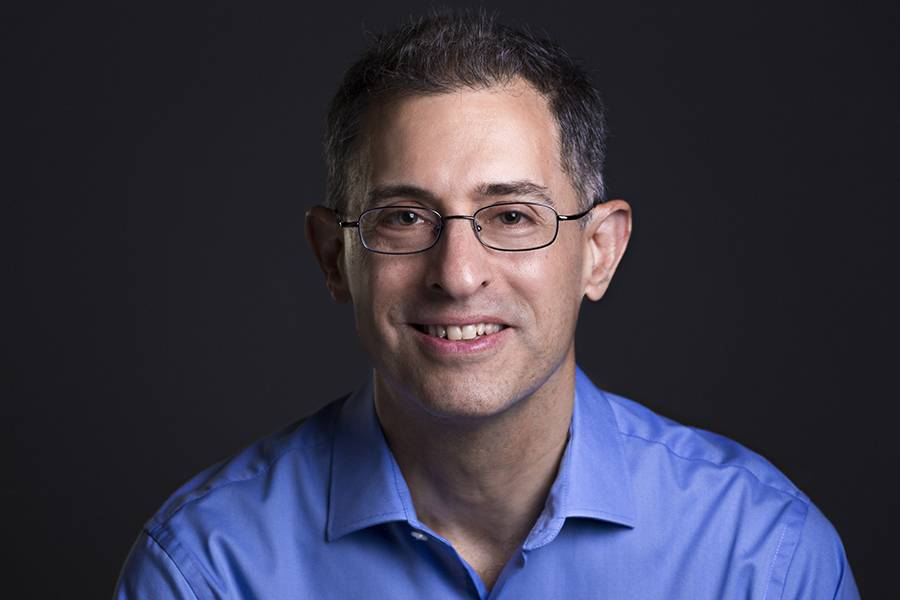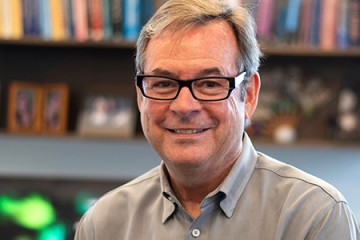Some people know from a young age what they want to be when they grow up. Jeremy Shiffman took a more roundabout journey.
Educated in philosophy at Yale and international relations at Johns Hopkins, he detoured into careers in international corporate PR, social work with Vietnamese refugees, and teaching English as a second language in China before pursuing a PhD in political science at the University of Michigan and becoming a leading researcher in global health policy.
"Even when I finished my doctorate, I wasn't sure which way to go with my research," he says. "It took me a couple of years to figure out that I was actually a health person—it kind of came by chance."
It wasn't until after he began publishing his health policy research that he decided to pursue a career in the relatively undeveloped discipline, which applies political science theory to the analysis of how governments, international organizations, and private sector groups create and implement health policies. His work has been published in some of the world's leading medical, public health, and health policy journals, including The Lancet, and has been funded by the Gates, MacArthur, Rockefeller, and Open Societies foundations, among others.
"All political scientists are interested in questions of power and authority," Shiffman says. "But I've always wanted to apply these questions to issues that pertain to social equity and social justice, especially in low-income countries. Health policy was a great avenue for pursuing that."
Shiffman is the 34th scholar to join Johns Hopkins University as a Bloomberg Distinguished Professor, a group of interdisciplinary researchers at Hopkins who are working to address major world problems and teach the next generation. The program is backed by a $350 million gift from Johns Hopkins alumnus, philanthropist, and three-term New York City Mayor Michael R. Bloomberg.
Shiffman comes to Hopkins from the School of Public Affairs at American University in Washington, D.C., where he was named Scholar-Teacher of the Year in 2017 in honor of his outstanding research and teaching. He will hold joint appointments in JHU's Bloomberg School of Public Health and School of Advanced International Studies, where he received his master's degree in 1988.
"Dr. Shiffman is a leading scholar whose work intersects political science and global health policy—a nexus of great academic interest at the Bloomberg School of Public Health," says Ellen MacKenzie, dean of the Bloomberg School. "We look forward to learning from his expertise in the politics of global health and leveraging those insights for more informed research and richer learning outcomes for our students."
SAIS Dean Vali Nasr added: "Dr. Shiffman's research into public policy and global health policy has enriched our understanding of complex issues of great national concern. We're proud to welcome Shiffman, a Johns Hopkins SAIS alumnus, back into the fold where he will educate the next generation of leaders and scholars."
In the field of health policy analysis, Shiffman says, researchers often focus only on the merits of individual health policies. These apolitical methods of analysis ignore how the political interests of governments, advocates, and organizations affect which issues receive attention, which policies get adopted, and how these policies are implemented.
"You can't understand policy outcomes only by conducting technical analyses," he says. "You have to examine political dynamics and the behaviors of these global and national health policy communities, which shape how resources are allocated."
He's applied his holistic approach to policy analysis since he was a doctoral student in the 1990s, when he conducted dissertation research in Indonesia to study the country's government-sponsored family planning program under the authoritarian regime of former President Muhammad Suharto. Shiffman says he approached his research as an investigative reporter might approach an exposé—meeting with politicians, government officials, and health workers to discuss their goals and strategies, and speaking with citizens about their encounters with the family planning program.
It was challenging political ethnographic work, he says, but it was essential in order to thoroughly understand how Indonesia's reproductive health programs functioned at the time.
"The real stories on how policies are developed are often not documented anywhere—they're in people's heads," he says. "It's through talking to people that you figure it out."
The community of researchers applying political and other social science theory to the analysis of global health policymaking is small, Shiffman says, but one of his priorities is growing that community and supporting young scholars along the way. He's organized a series of symposia—the third of which convenes this October in Liverpool, England—to bring together emerging scholars to share their research.
Video credit: Johns Hopkins SAIS
He'll be joined at Johns Hopkins by his collaborator and former PhD student, Yusra Shawar, an assistant scientist who will hold a primary appointment in the Bloomberg School of Public Health and a courtesy appointment at SAIS. Together, Shiffman and Shawar have published six studies—three in The Lancet—and have an additional seven ongoing.
"Jeremy has taught me what good mentorship looks like and how important it is," Shawar says. "He opens up opportunities for his students and colleagues while also holding them to the highest expectations and helping them to improve. He genuinely wants his students to succeed, often quietly lifting and advising in the background. I hope to be this kind of mentor to my own students."
Sunil Kumar, provost of Johns Hopkins University, says Shiffman embodies the leadership qualities that set JHU's faculty apart.
"As a pre-eminent scholar in the burgeoning field of global health policy, his dedicated mentorship and innovative thinking will foster deeper understanding among our students and faculty, and his joint appointments will help bring the schools of Advanced International Studies and Public Health closer together," Kumar says.
Shiffman says he's looking forward to joining Hopkins, where the community of researchers doing this kind of scholarship has grown in recent years.
"It's exciting to be at Hopkins," he says. "I get to be part of the best school of public health in the world and the best school of international affairs in the world. And I have the chance to enrich global health studies and help build a community of global health policy scholars who are concerned with political dynamics. I think Hopkins will be a great platform to do that kind of field building."









